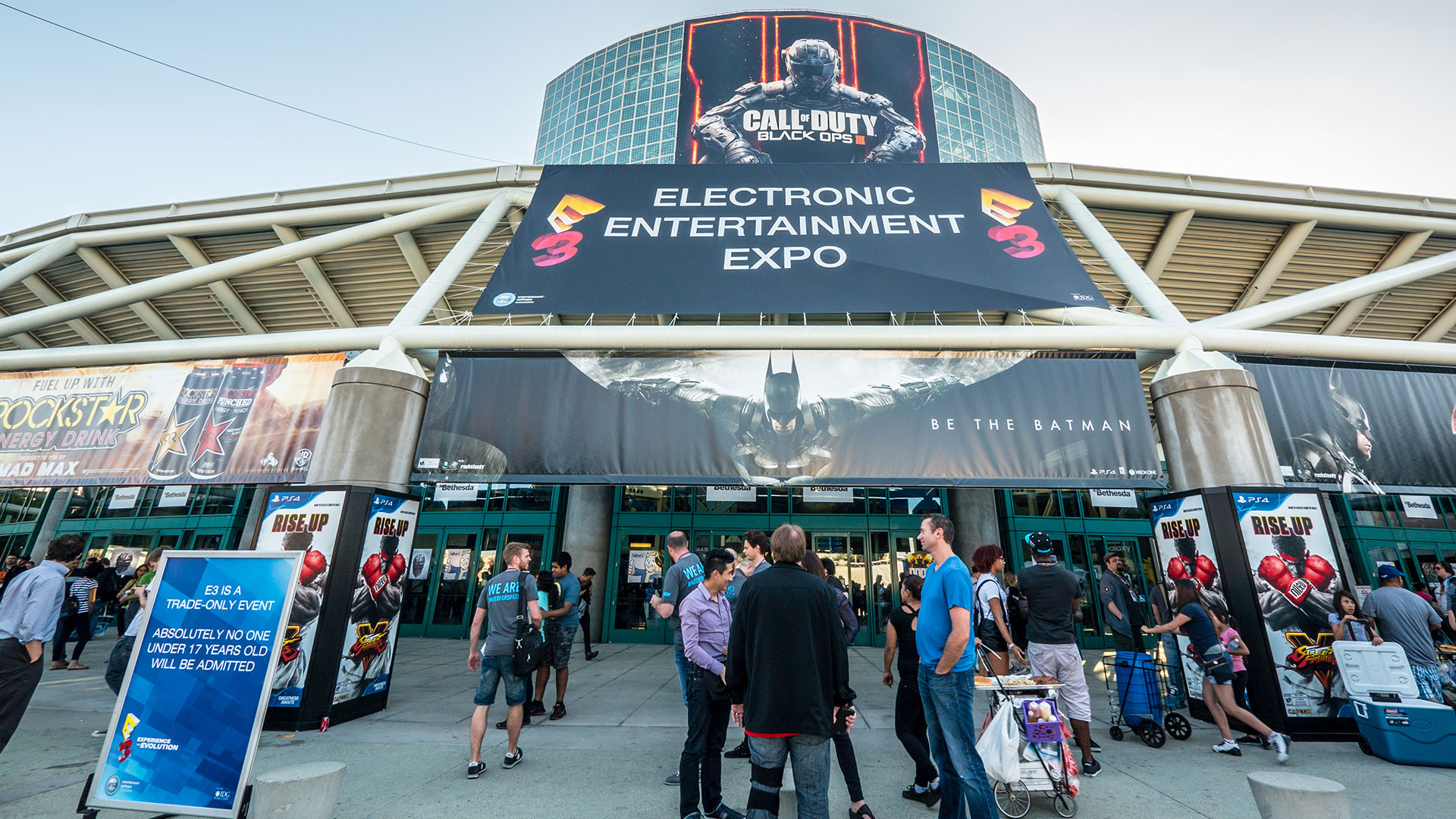E3 is dead, again — troubled trade show stuttered at end of 28 year run
The virtual-only 2021 event marked the end of the downward spiral.

Get Tom's Hardware's best news and in-depth reviews, straight to your inbox.
You are now subscribed
Your newsletter sign-up was successful
After more than two decades in operation as the biggest event in gaming media, E3 has finally keeled over and been declared dead by its operators, the ESA. Following both a Washington Post interview with the head of the ESA and a "GGWP" on what used to be called Twitter, the world now knows that it must continue without E3.
To those who have been following the news regarding E3, this announcement is likely not a huge surprise. There was no E3 press conference in 2020, and E3 2021 was a virtual online event that will be the last-ever E3 ever. The writing on the wall for the eventual death of E3 has been around for quite some time, though.
In the past, E3 served as a centralized hub from which the three major console vendors and various publishers could make all their biggest game announcements each year. This included first-time looks at upcoming games, unveilings of new console hardware, and pretty much any other kind of video game announcement you care to name. E3 was a summer event, too, which made it ideal for building buzz and hype prior to the upcoming holiday season.
What led to E3 having such a prolonged death? While the 2020 pandemic undoubtedly had a major impact on E3 by canceling that year's press conference entirely, the industry as a whole had been progressing away from E3 for years.

In 2011, Nintendo debuted their "Nintendo Direct" format, which wrapped all the trailers and reveals that would normally be saved for an E3 press conference into a live-streamed video format instead. Other publishers and developers soon started pivoting to an online-first approach for game announcements and reveals, culminating in Sony deciding to forego E3 2019 entirely.
Whatever power the ESA used to have over the gaming industry via E3 has clearly been long dead, even before this announcement. In a pre-Internet and then pre-social media era, E3 made a lot of sense as the main platform for the year's biggest gaming announcements. Unfortunately, E3's utility to gamers has only ever been the announcements.
E3's utility to publishers was more about advertising. But why spend tens or even hundreds of thousands on an expensive press conference each year when you can just edit together a reel of trailers and call it a day? Why buy plane tickets for an annual game announcement event when the same announcements are available at home, no pants or tickets required?
E3 clearly wasn't long for the world— at least, not the always-online world we live in now. It served its purpose quite well while it lasted, though, and a number of gamers, journalists, publishers, and developers alike have fond memories of the various E3 conferences. We won't be making any memories at new E3 events, but if you're feeling nostalgic, check out Digital Foundry's DF Retro E3 series. That PS3 reveal was a real treat, and not for any of the reasons Sony wanted it to be.
Get Tom's Hardware's best news and in-depth reviews, straight to your inbox.

Christopher Harper has been a successful freelance tech writer specializing in PC hardware and gaming since 2015, and ghostwrote for various B2B clients in High School before that. Outside of work, Christopher is best known to friends and rivals as an active competitive player in various eSports (particularly fighting games and arena shooters) and a purveyor of music ranging from Jimi Hendrix to Killer Mike to the Sonic Adventure 2 soundtrack.
-
epobirs A lot of memories there. I attended every E3 from the beginning, except for the first year in Atlanta, for twenty years. The first several with a friend who died in a car accident in late 2000. I went straight from the show floor to a Toy R Us to make one of the very first purchases of a Sega Saturn in the US, mere hours from Sega announcing the early availability. The mic drop moment of "$299." A different world from today. Starting with CES in 1984, I traveled to a LOT of trade shows over nearly 30 years. It's a format that just doesn't make sense for many product categories anymore.Reply -
cirdecus It was dead because of the decision to make the 2021 even virtualized... While being overly cautious may have sounded good, these events were fueled by the in-person extravagance and interactions.Reply